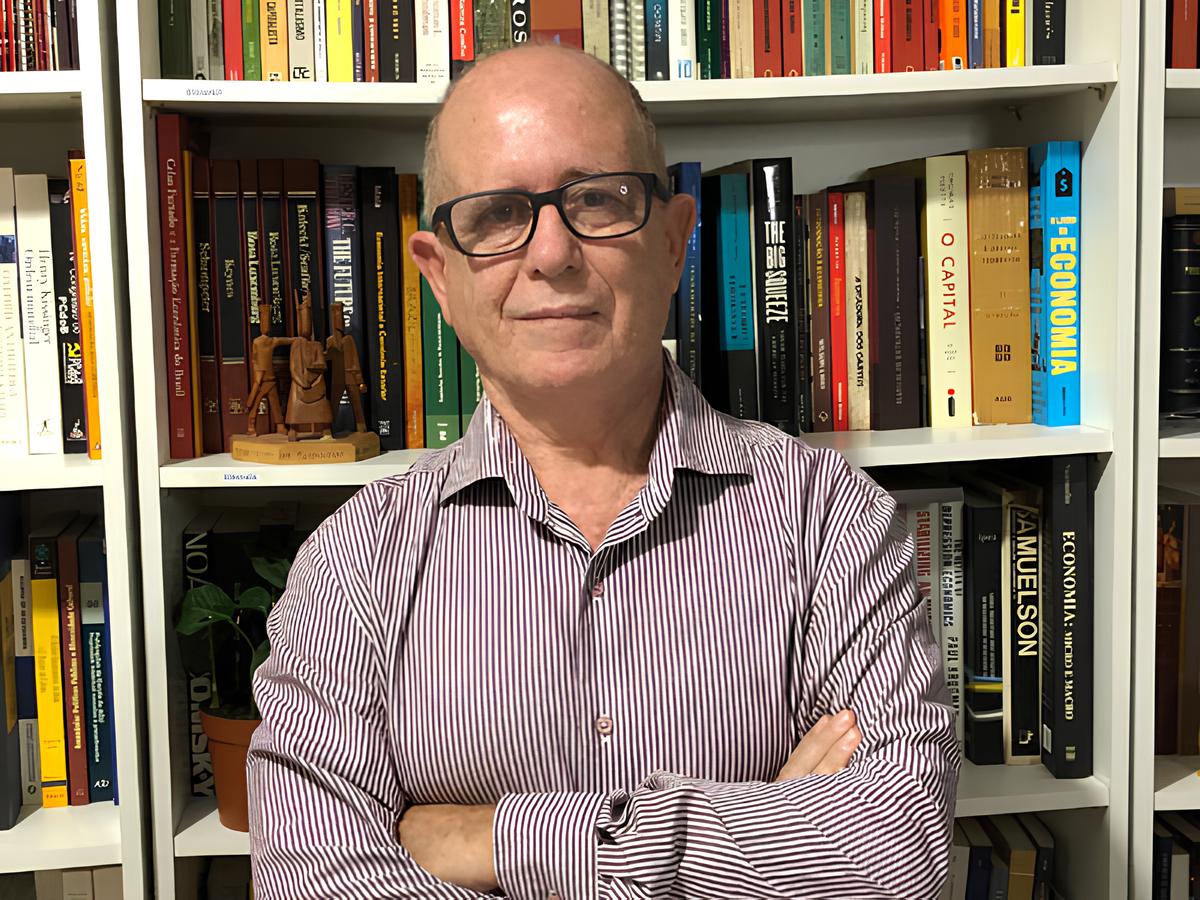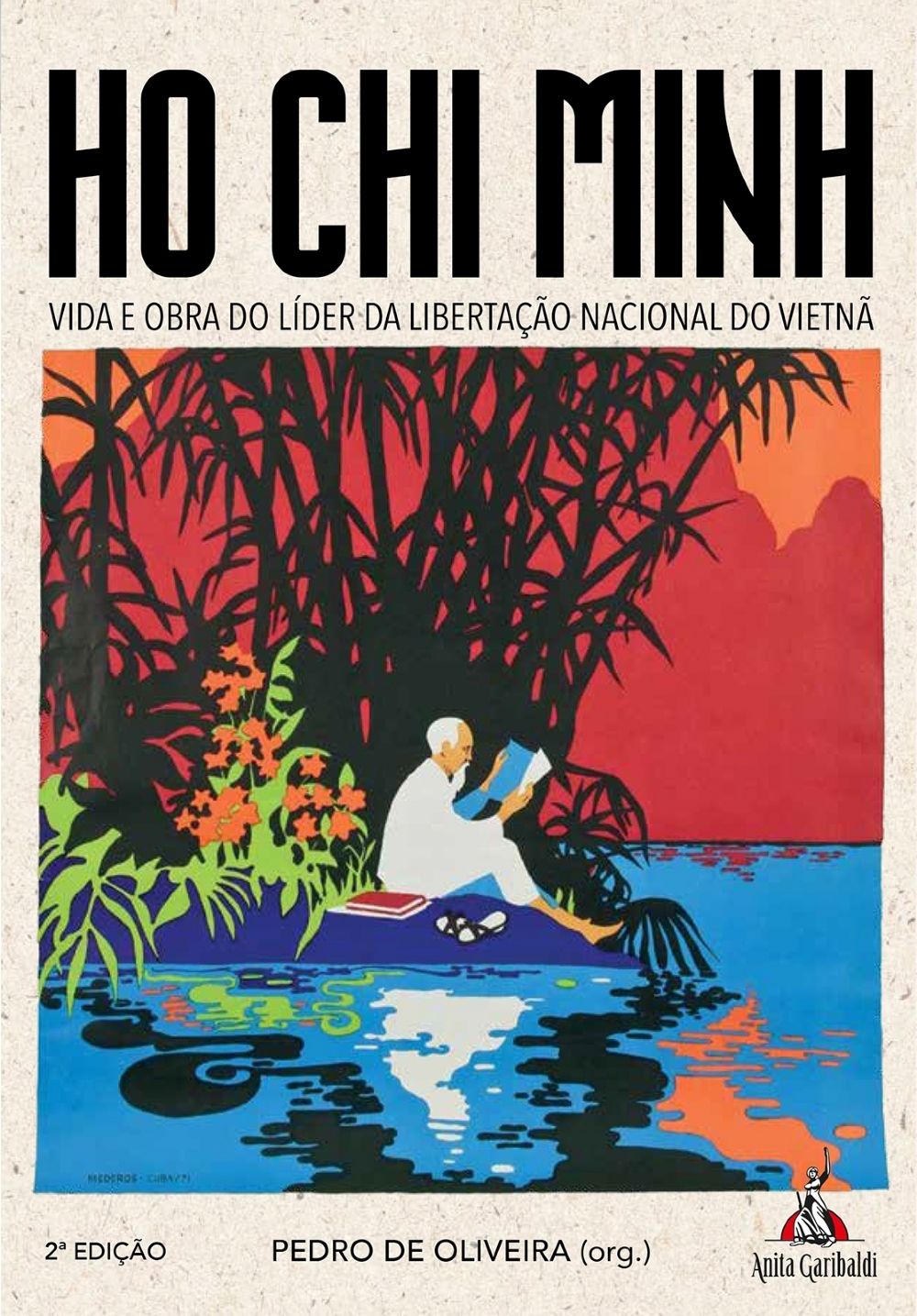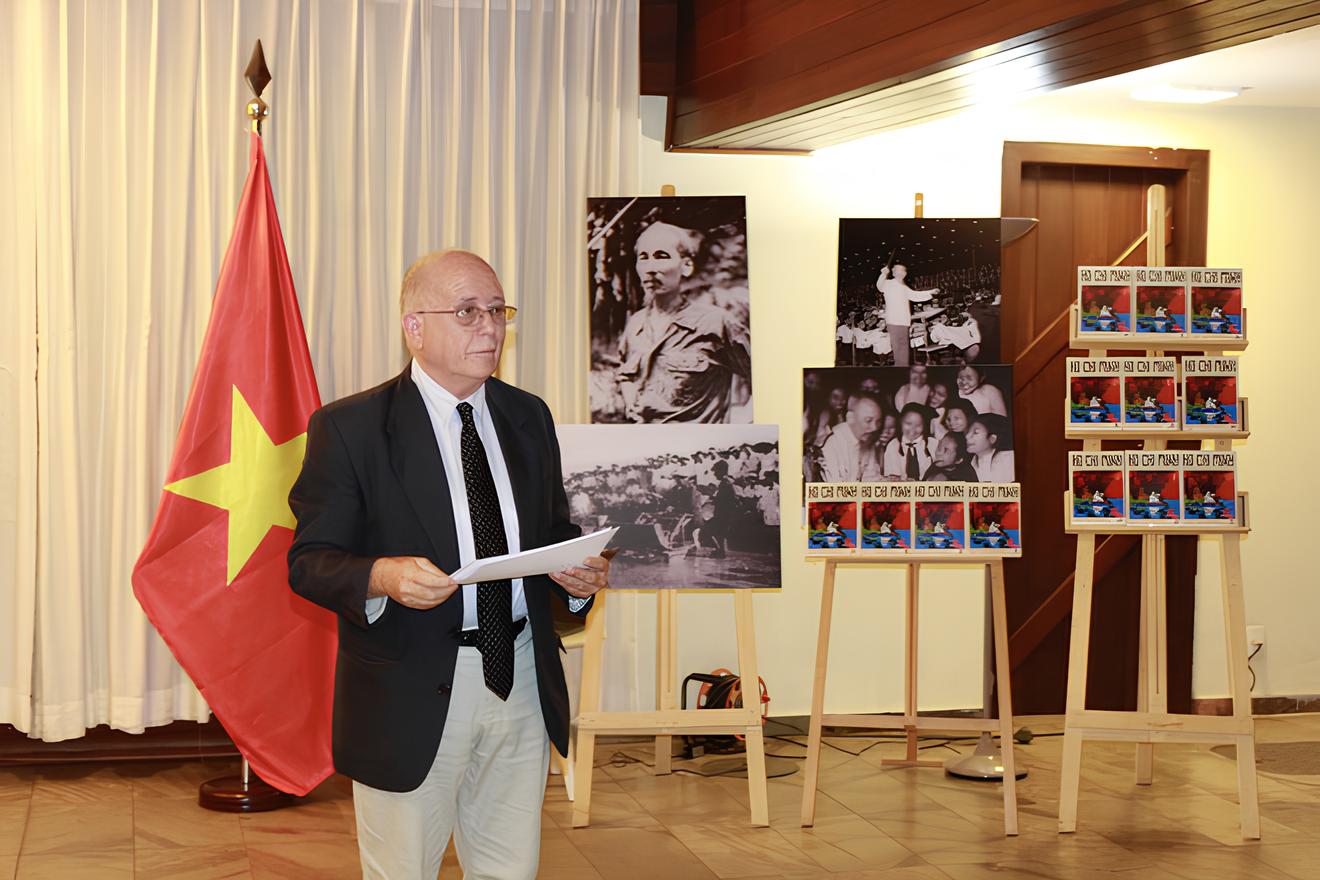"The scenes were horrific and haunting. We couldn't remain indifferent," recalls journalist Pedro de Oliveira, 77, of the clandestine film screenings more than half a century ago.
These films were sent by the National Liberation Front of South Vietnam so the international community could better understand the war the US was waging in Vietnam.
From then on, Pedro and his friends turned small screening rooms into places to bring the truth about US military atrocities to students across Brazil.
 |
Journalist and historian Pedro de Oliveira, an international friend who has supported and loved Vietnam for over half a century. Photo courtesy of the subject. |
Journalist and historian Pedro de Oliveira, an international friend who has supported and loved Vietnam for over half a century. Photo courtesy of the subject.
But this path of struggle came at a high price for Pedro: 7 imprisonments and an interrupted education. The first time, the young man in his twenties was beaten in the streets of Sao Paulo during a May Day demonstration. The second time, as president of the social sciences student body, he was arrested while showing films about the Vietnam War.
In prison, Pedro endured various forms of torture, the most haunting being electric shocks. "My body convulsed violently, thousands of blood vessels felt like they were about to burst. I fainted and then woke up to be tortured again," he recalls.
Five other times, he was arrested for journalistic activities related to the communist movement. Under the then military government in Brazil, people could be arrested without trial; simply taking to the streets to protest the Vietnam War was enough to be considered a "threat to national security".
Pedro says many of his comrades never returned. He was lucky to survive, but decades in and out of prison cells left an indelible mark. After his 7th release, he began to study international movements more deeply.
When delving into Vietnamese history, Pedro felt like he had discovered a "treasure." "From the history of resistance against the Mongols, the French, and the protracted war against the Americans, I realized the resilience of a small nation is the strength that helped them repeatedly defeat the most powerful empires," he shares.
Since then, Vietnam has become a source of inspiration for the journalist. Among the works that have appeared in the Brazilian press over the years, some focus on the period when Nguyen Ai Quoc stopped in Rio de Janeiro at the age of 21, on his journey to find a way to save his country.
In a 2021 article in Vermelho, Pedro argued that the desire to overthrow colonial oppression was not unique to Nguyen Ai Quoc. But Nguyen Ai Quoc's journey bore a unique mark. The young Annamese man began by setting foot in lands under the domination of empires in Africa and Latin America. In Brazil, Nguyen Ai Quoc met Jose Leandro da Silva, the black sailor who led the Chibata Revolt.
"Ho Chi Minh witnessed firsthand the colonial exploitation and severe social inequality occurring in Brazil at that time," Pedro's article states, adding that these experiences contributed to the formation of the national liberation ideology he pursued throughout his life.
 |
The book "Ho Chi Minh: Life and work of the leader of Vietnam's national liberation," compiled by Pedro, has been reprinted several times. |
In 2022, Pedro's book "Ho Chi Minh: Life and work of the leader of Vietnam's national liberation" won first prize in the 8th National External Information Awards, an annual national award chaired by the Central Commission for Propaganda and Education.
Pedro recounts the arduous journey of writing the book, as he couldn't find any materials in Portuguese and had to rely on his limited English and Spanish. Starting with Ho Chi Minh's works, he also sought out the confessional memoirs of former US Secretary of Defense Robert McNamara and pondered scholar Hans Morgenthau's analyses of US foreign policy mistakes.
For many days, Pedro worked at the National Library of Vietnam, met with scholars from the Vietnam Academy of Social Sciences in Hanoi and Da Nang, and pored over every issue of Nhan Dan newspaper. Each piece of information, to him, was like a brick to lay the foundation for his book.
Upon receiving the award, Pedro was moved. Standing on the stage at the Hanoi Opera House, he said, "I want to dedicate this award to the soldiers of the National Liberation Front of South Vietnam, those who sent the films that changed my life."
Besides his deep love for a country halfway around the world, in recent years, as General Secretary of the Brazil-Vietnam Friendship Association, Pedro has worked to bring Ho Chi Minh's thought and Vietnam's development experience closer to the people of Brazil and other Latin American countries. The association is currently publishing a book about Ho Chi Minh's life and career in Spanish, so that his legacy can spread more widely.
"Another special project I'm pursuing is researching Ho Chi Minh's mark on Brazil in 1912, when he arrived in Rio de Janeiro, fell ill, and had to stay for several months for treatment. This is an important chapter in history, contributing to the awakening of the anti-racism movement and the protection of rights for workers in the Brazilian maritime industry," Pedro shares.
In addition to research activities, the Brazil-Vietnam Friendship Association also serves as a bridge for cultural, sports, economic, and trade exchanges between the two peoples. The association is collaborating with the Brazilian Ministry of Science, Technology, and Innovation to expand cooperation in key areas like semiconductors and aviation, aiming for mutual benefits for both countries.
 |
Pedro de Oliveira shares his journey of discovering Ho Chi Minh Thought at the 133rd anniversary of President Ho Chi Minh's birth, in Brasilia in 2023. Photo: VNA |
Pedro de Oliveira shares his journey of discovering Ho Chi Minh Thought at the 133rd anniversary of President Ho Chi Minh's birth, in Brasilia in 2023. Photo: VNA
In early September, this Brazilian friend returned to Vietnam for the 4th time. He was impressed by the sight of people camping along the roads, patiently waiting for the parade commemorating the 80th National Day.
On this occasion, Pedro and some international friends will be met, honored, and awarded by the Party and State. Pedro expressed his honor and cherishes every opportunity to return to the country he loves. Each time he visits, he feels like he has another opportunity to learn about the country's history, society, politics, and economy.
"As we prepare for the 16th Congress of the Brazilian Communist Party this October, we consider Vietnam's experience as an example to learn from," Pedro shares.
Phan Duong












